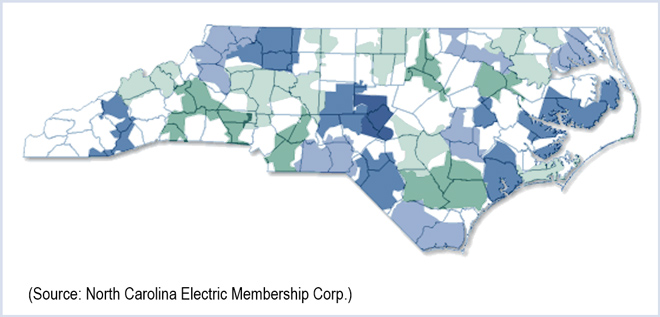The North Carolina Electric Membership Corp. is protesting a request by Dominion Resources to push back the effective date for a rate revision by more than a year.
Last April, the Federal Energy Regulatory Commission approved Dominion’s request for revised transmission depreciation rates with an effective date of April 1, 2013 (ER14-1549).
On Jan. 15, Dominion asked FERC to change the effective date to Jan. 1, 2012, saying its request would only change the effective date of the revised rates, not the rates themselves.
NCEMC, however, says that Dominion’s request would run afoul of the commission’s prohibition against retroactive ratemaking.
“This filing effectively seeks to retroactively charge increased rates to Dominion’s transmission customers for transmission service purchased during the locked-in period Jan. 1, 2012, through March 31, 2013,” NCEMC said in its protest (ER15-856).
Dominion is requesting the extension because of a Virginia State Corporation Commission ruling that set the 2012 date for the updated depreciation rates for bookkeeping purposes. The SCC filed comments in support of Dominion, saying that its precedent holds that a “change in costs must be recorded in the appropriate accounting period coincident with the change; this is true for depreciation expense as well as other costs.”
“Thus, while Dominion correctly notes that its filing is necessitated by the directive of the [SCC] … this implementation date is also consistent with sound utility accounting practice,” the SCC said.
NCEMC argues that, based on prior similar cases, FERC “is not bound by state determinations regarding retail rate proposals. And Dominion cited no precedent to indicate that other commission policy considerations require consistency between state and federal depreciation rates, plant balances or depreciation reserves.”




